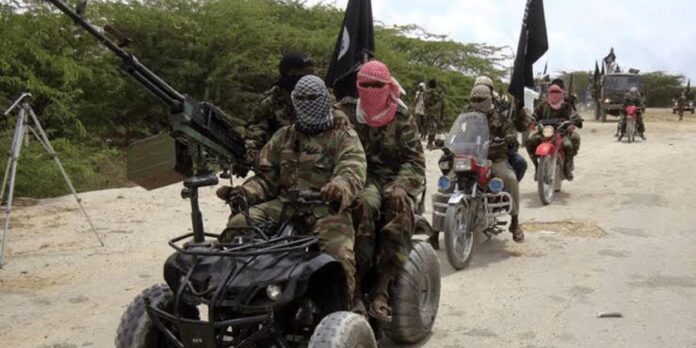The Federal Government is set to arraign five suspected terrorists with alleged ties to Bello Turji, a notorious bandit and terror kingpin whose operations have caused widespread suffering in Nigeria’s northwest. The arraignment, which will take place today at a Federal High Court in Abuja, comes as a significant step in the nation’s fight against terrorism.
The suspects, identified as Musa Kamarawa, Abubakar Hashimu (also known as “Doctor”), Bashir Abdullahi, Samuel Chinedu, and Lucky Chukwuma, were apprehended by Nigerian security agencies and will be presented before Justice Emeka Nwite, a vacation judge.
However, their arraignment last Friday was delayed because the defendants did not have legal representation. The Attorney-General of the Federation’s (AGF) counsel, David Kaswe, requested an adjournment, which Justice Nwite granted, rescheduling the case for Monday.
The Federal Government, through the AGF’s office, has filed an 11-count charge against the suspects. Three additional defendants – Bello Turji himself, Aminu Muhammad, and Sani Lawal – are currently at large.
According to the charges filed by M.B. Abubakar, Director of the Department of Public Prosecutions, the suspects allegedly provided logistical support to terrorist groups led by Turji and other commanders, including Kachalla Halilu, Danbokolo, and Buderi. These supports reportedly included illicit drugs such as cannabis and penta injections, as well as essential supplies like food, clothing, and construction materials.
One of the most shocking allegations involves the procurement of a military-grade gun truck from Libya, which was reportedly sold to terrorist commander Kachalla Halilu for ₦28.5 million. Prosecutors claim the vehicle was paid for partly in cash and partly via electronic transfers.
“You knew or had reason to believe that this vehicle would be used by a known terrorist to commit acts of terrorism,” the charge read in part, invoking Section 18(a) of the Terrorism (Prevention) (Amendment) Act of 2013.
This is not the only alleged instance of material support. The defendants are accused of aiding Turji’s network by providing medical care for gunshot injuries he sustained during an attack on Tungar Kolo Village in Zurmi Local Government Area of Zamfara State.
Bello Turji is one of the most wanted terrorists in Nigeria, with a reputation for orchestrating violent raids, kidnappings, and mass killings. His activities have devastated communities across Zamfara, Sokoto, and Kaduna states, prompting intensified government efforts to dismantle his network.
A security analyst familiar with the case stated, “This trial could shine a light on how terror networks operate within Nigeria and their sources of funding and supplies. Dismantling these networks is key to restoring peace in affected areas.”
Today’s hearing follows delays caused by the absence of legal counsel for the suspects during Friday’s session. Analysts have raised concerns about the possibility of further procedural obstacles that could undermine the swift delivery of justice.
The government is determined to push forward. Speaking on the case, a spokesperson for the Department of Public Prosecutions said, “This is part of our broader strategy to hold accountable not only the perpetrators of terrorism but also those who facilitate their heinous activities.”
The case highlights the growing sophistication of terror operations in Nigeria, where local and international networks intersect. The alleged importation of weaponry from Libya reflects the regional dimensions of terrorism and the urgent need for cross-border collaboration.
Civil society organisations have urged the government to use this trial as an opportunity to demonstrate its commitment to transparency and the rule of law.
“We need to send a strong message that no one is above the law, and those who support terrorism will be held accountable,” said Fatima Musa, a human rights advocate.
The charges against the suspects are based on provisions of the Terrorism (Prevention) (Amendment) Act of 2013. This legislation empowers the government to prosecute individuals and groups involved in terrorism, including those who provide material support. Convictions under the Act carry severe penalties, including long prison sentences and, in some cases, the death penalty.
Since its enactment, the law has been instrumental in prosecuting cases tied to Boko Haram and other terror groups. However, challenges remain, particularly in the areas of intelligence gathering and judicial efficiency.

